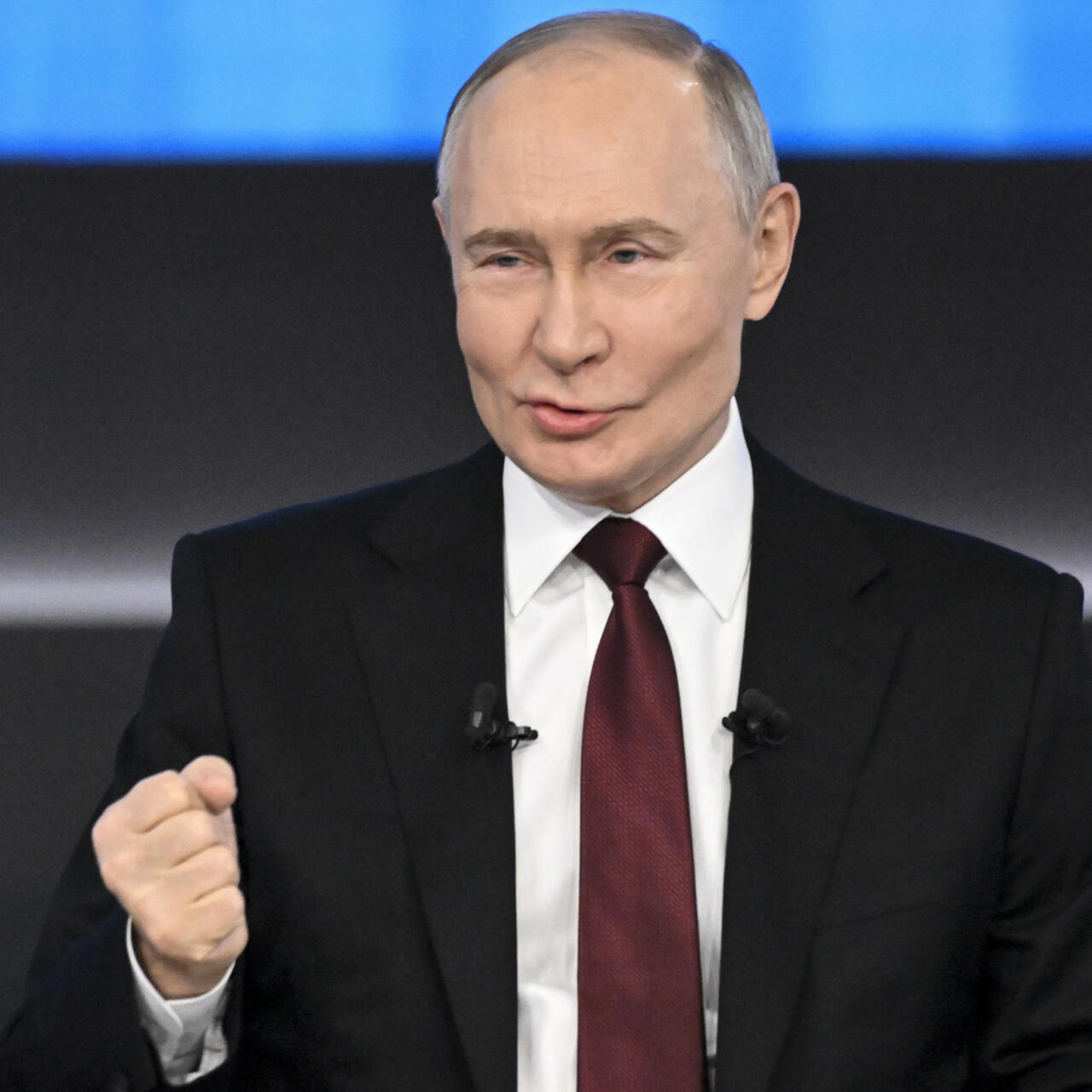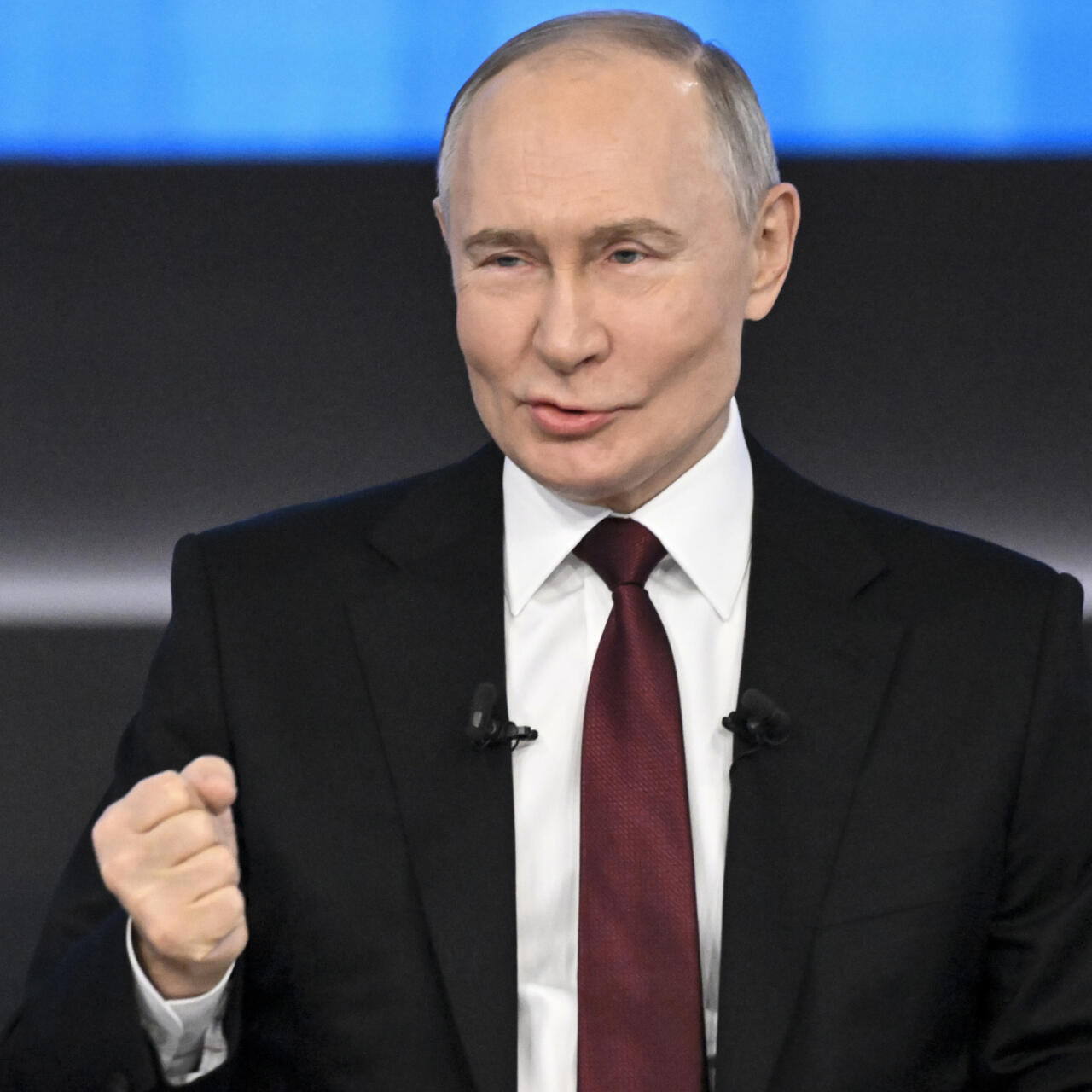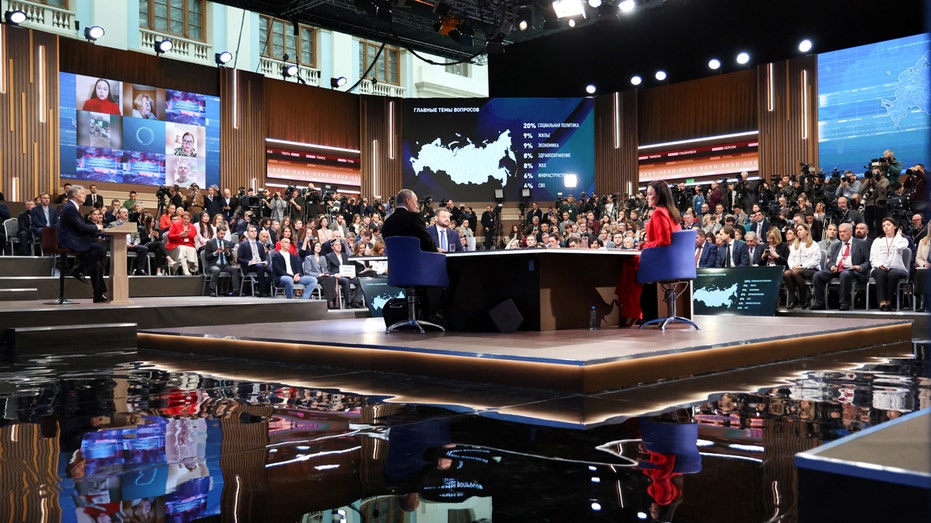
Putin Open to Ukraine Negotiations with Newly Elected President Trump
In a surprising announcement on Thursday, Russian President Vladimir Putin expressed his willingness to explore potential negotiations regarding the ongoing conflict in Ukraine. This comment was made during his annual televised question-and-answer session as he indicated a readiness to engage in diplomacy with newly elected U.S. President Donald Trump. Putin made it clear that Moscow is prepared to enter discussions with Kyiv without holding any preconditions.
Trump’s Role as a Deal Maker
Donald Trump, known for his self-image as a skilled negotiator and the author of the book “Trump: The Art of the Deal”, has vowed to swiftly bring an end to the war in Ukraine. However, the specifics of his strategy to achieve peace remain largely vague. During Putin’s remarks, he mentioned that he was open to meeting Trump, despite not having had a conversation with him in recent years. This development unfolds amid continued military efforts by Russian forces in Ukraine, which have increased tensions with Western nations.
Open to Negotiation but on Russia’s Terms
During his address, Putin emphasized Russia’s commitment to negotiations, stating a preference for a collaborative approach with Ukraine. “In my opinion, soon there will be no one left [in Ukraine] who wants to fight. We are ready, but the other side needs to be ready for both negotiations and compromises,” he stated. Reports in recent weeks indicated that Putin might be open to a ceasefire agreement with Trump, albeit under specific conditions. Nonetheless, he appeared firm on significant points, including the rejection of any substantial territorial concessions and the insistence that Ukraine abandon its aspirations for NATO membership.
Political Legitimacy and Negotiations
Putin stressed that any potential peace agreement must involve legitimate political representatives of Ukraine, which he identifies as the Ukrainian parliament. He dismissed interim arrangements led by President Volodymyr Zelenskyy unless Zelenskyy is re-elected under terms recognized by Russia. While he ruled out the possibility of a temporary truce, he called for a comprehensive and enduring peace deal that respected Russian interests.
Putin suggested revisiting preliminary agreements established during negotiations in Istanbul at the war’s outset. Ukrainian officials have criticized these early proposals as undermining Ukraine’s sovereignty, labeling them secretive offers of capitulation.
The Conflict’s Toll and Economic Fallout
Since Russia’s invasion of Ukraine in 2022, the conflict has exacted a heavy toll, resulting in tens of thousands of lives lost and millions displaced. The ongoing war has plunged diplomatic relations between Moscow and the West to their lowest point since the Cuban Missile Crisis in 1962. Russia describes its military actions in Ukraine as a ‘special military operation,’ aimed at countering NATO’s eastward expansion. Currently, Russian forces occupy approximately one-fifth of Ukrainian territory, including pivotal regions seized throughout the year.
Putin touted recent territorial gains made by Russian troops, particularly in Eastern Ukraine, with an emphasis on overcoming military resistance in vital areas. However, he acknowledged the complexities of warfare and described the fighting’s unpredictable nature, cautioning against speculation about future outcomes.
Economic Concerns amid Conflict
The war has substantially reshaped the economic landscape in Russia. In his address, Putin raised concerns about potential overheating within the Russian economy, noting persistent inflation rates. Despite these challenges, he asserted that Russia’s economic performance surpasses that of several Western nations, including Britain. Reflecting on the timing of the invasion, he expressed regrets, stating, “We should have sent troops into Ukraine earlier and been better prepared for the conflict.”
Russia’s Geopolitical Aspirations
On the larger global stage, Putin dismissed rumors regarding a perceived decline in Russian influence, particularly in the Middle East. He reiterated Moscow’s commitment to sustaining its military presence in Syria and maintaining advantageous discussions with the Syrian leadership surrounding its bases in the region. Additionally, he remarked on the technological superiority of Russia’s hypersonic missile, “Oreshnik,” and hinted at further tests designed to challenge Western air defense systems.
Reaction from Ukraine and the West
In response to Putin’s comments, Ukrainian President Volodymyr Zelenskyy, during a European Council meeting in Brussels, deemed much of the Russian leader’s rhetoric as irrational. Concerning Putin’s missile threats, Zelenskyy questioned, “Do you think he is a sane person?” His remarks underscored the prevailing skepticism surrounding Moscow’s intentions amidst the ongoing conflict.
The situation in Ukraine represents one of the most significant challenges to European stability in recent decades as Russia continues its military campaign while simultaneously suggesting tentative openness to diplomacy. Although Putin stated that Russia had “moved back from the edge of the abyss,” his statements have left many crucial questions regarding the future of the conflict and any prospects for a lasting peace unresolved. As diplomatic negotiations loom on the horizon, the world watches closely to see whether meaningful dialogue can emerge from the ongoing turmoil.


















